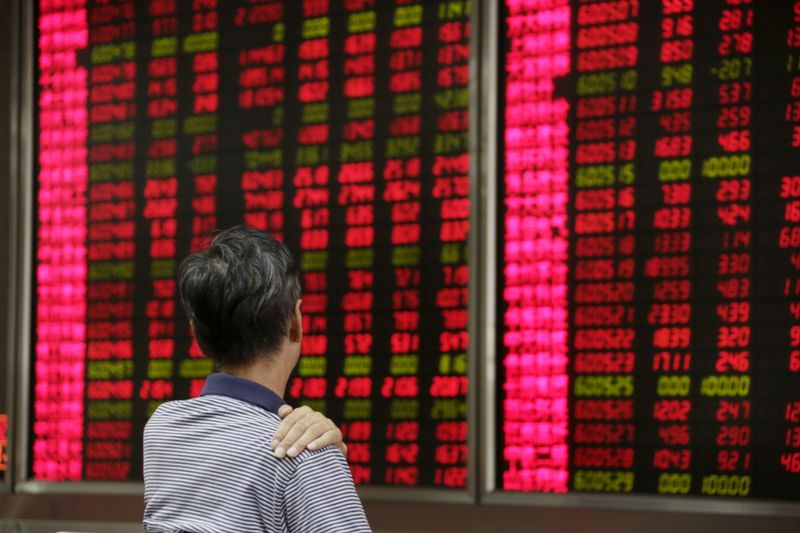Asian shares weighed down by China worries as U.S. earnings shine By Reuters

By Wayne Cole
SYDNEY (Reuters) – Asian shares face another tough week as Beijing’s regulatory crackdown fans fears about China’s economy, though upbeat economic data in the United States and Europe and solid corporate earnings put a floor under their markets.
China’s woes were underlined over the weekend by a survey showing factory activity grew at the slowest pace in 17 months amid rising costs and extreme weather.
In contrast, Europe’s economic recovery outpaced all expectations last quarter, while U.S consumers spent with abandon in June as coronavirus restrictions eased, a trend likely to ensure a strong payrolls report at the end of this week.
“Surging company profits in the U.S. and lower bond yields are providing support, and in any case the rising trend in shares is likely to remain in place into next year as rising vaccination rates allow economic recovery to continue,” said Shane Oliver, chief investment strategist at AMP Capital.
About 89% of the nearly 300 recent U.S. earnings reports have beaten analysts’ profit estimates. Earnings are now expected to have climbed 89.8% in the second quarter, versus forecasts of 65.4% at the start of July.
There was also the prospect of more fiscal stimulus ahead as U.S. Senators worked to finalise a sweeping $1 trillion infrastructure plan that could pass this week.
The optimism was apparent in early trading with S&P 500 futures rising 0.4% and Nasdaq futures 0.3%.
Asia has fared so well, with China’s crackdown on the tech and education sectors hammering stocks, while the spread of the Delta variant of the coronavirus in the region hit growth.
MSCI’s broadest index of Asia-Pacific shares outside Japan was a just fraction firmer early Monday, having hit its low for the year so far last week.
Japan’s Nikkei bounced back 1.1%, but that was from its lowest since January. Investors were anxiously waiting to see how Chinese blue chips fared after that index shed 5.5% last week.
Equity valuations elsewhere have been supported by a steady decline in bond yields, with yields on U.S. 10-year notes falling for five weeks in a row to reach 1.23%.
That drop combined with surprisingly strong EU economic data out on Friday to lift the euro to $1.1866, away from its July low of $1.1750.
The dollar has also drifted off to 109.67 yen, from its recent top of 110.58, but has support around 109.35. As a result, the dollar index has eased to 92.110, from a July peak of 93.194.
The drop in bond yields and the dollar gave gold a fillip last week but it again faltered at resistance around $1,832 and was last trading flat at $1,812 an ounce.
Oil prices eased a little on Monday, but that comes after four straight months of gains amid expectations demand will remain strong and supply constrained. [O/R]
Brent was last down 29 cents at $75.12 a barrel, while U.S. crude lost 23 cents to $73.72.

